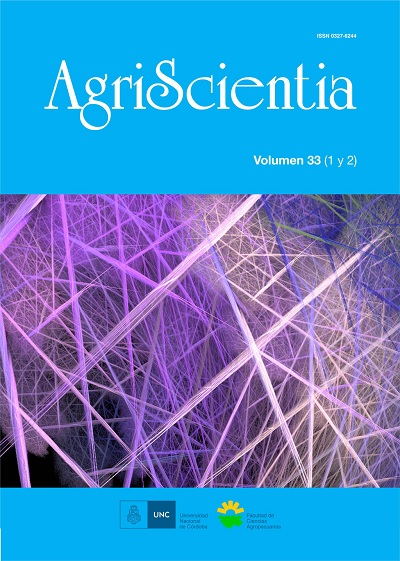Effects of livestock intensification on fossil energy use efficiency and rangeland conservation in the lower basin of the Salado river, Buenos Aires province, Argentine
Main Article Content
Abstract
The aim of the study was to explore the impact of the current process of intensification in cattle production systems on the environmental sustainability in the Salado basin region. We compared the proportion and condition of grasslands, fossil energy consumption per unit of area and per unit of product and fossil energy use efficiency on13 livestock farms that used different input levels for cattle feeding. Fossil energy consumption per unit of area ranged from 600 to 3600 megajoules (MJ) ha-1 yr-1, fossil energy consumption per unit of product from 0.01 to 8.49 MJ.kg-1 of live weight, and fossil energy use efficiency from 0.92 to 1973 MJ of energy produced per MJ of energy consumed. Fossil energy consumption was lower and fossil energy use efficiency was higher on farms with a large proportion of rangeland in good condition as a consequence of appropriate grazing management with respect to higher feed-input farms. The current process of intensification is causing a decrease in the energy efficiency of meat production systems, which might affect environmental sustainability.
Downloads
Download data is not yet available.
Article Details
How to Cite
Jacobo, E., Rodriguez, A., Gonzalez, J., & Golluscio, R. (2016). Effects of livestock intensification on fossil energy use efficiency and rangeland conservation in the lower basin of the Salado river, Buenos Aires province, Argentine. AgriScientia, 33(1), 1–14. https://doi.org/10.31047/1668.298x.v33.n1.16567
Issue
Section
Articles





